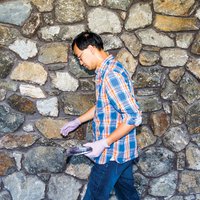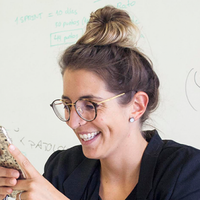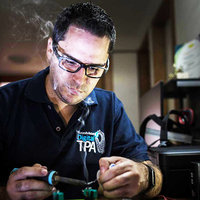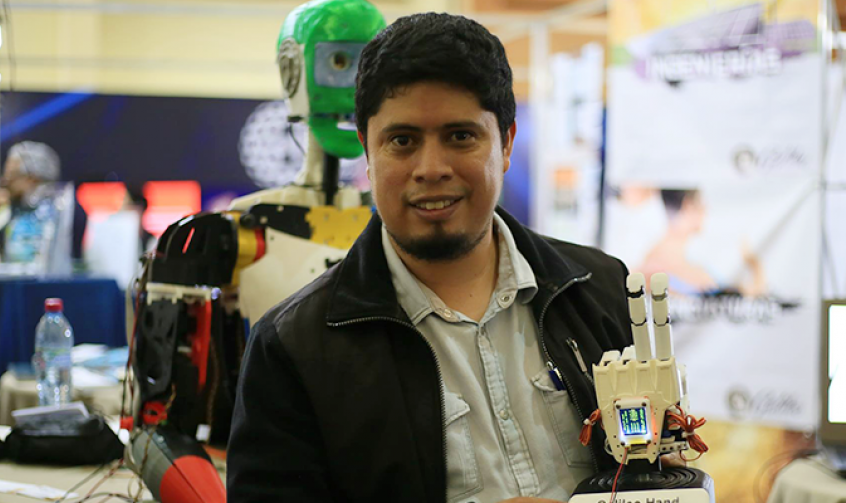"3d printing is revolutionizing the health care sector. Surgeons are already using models printed in 3D to plan the operations they will perform, customized knee prosthesis are being manufactured and traditional casts will soon be a thing of the past. All of these benefits, however, are often limited by their cost or by the geographical distribution of the companies which offer them commercially. So when the young Guatemalan Julio Fajardo first made contact with this technology, he decided to aim to make his advances available worldwide. His proposal is a prosthesis for forearm amputations below the elbow joint which anyone can produce for less than 500 dollars (approximately 456 euros) with a 3D printer. This development has led to Fajardo´s recognition as one of MIT Technology Review, Spanish Edition´s Innovators Under 35 Central America 2016.
Fajardo´s initiative, which began when he first saw a 3D printer at the University of Galileo (Guatemala), forms part of the do-it-yourself (DYI) movement. Through his initiative, the creators of prosthesis publish the instructions and tools required for a user to make the product according to his or her needs and possibilities. Fajardo has already published open source designs and instructions for making the mechanical version of the prosthesis. In addition to the printer, the user will need materials like the spring from a ballpoint pen and simple tools like a cigarette lighter or a pair of scissors in order to produce the prosthesis. Currently, the bionic version of the prosthesis is being tested by both patients and experienced and inexperienced assemblers. ""The idea is to keep it as simple as possible so that it will be easy to maintain, easy to use and easy to assemble,"" Fajardo explains.
His model includes a hybrid controller that registers the electric activity produced by the muscles in the user´s arm (an electromyogram). The patient can choose between three different types of gripper (bidigital, tridigital and lateral) through a touch screen or voice control, or opt to train the device´s artificial intelligence to automatically identify specific myoelectric patterns and execute the corresponding operation. Fajardo points out: ""We are looking for a balance between functionality, cost and a user-friendly interface so that patients are not forced to go through a training process as they need to do with other types of bionic prosthesis.""
In the words of the executive vice president and COO of the Inter-American Development Bank and jury member for the Innovators Under 35 Central America 2016 awards, Rafael Anta, Fajardo´s project is ""a great example of social innovation that demonstrates the possibilities which engineering, computer science and the open source movement can offer.""




